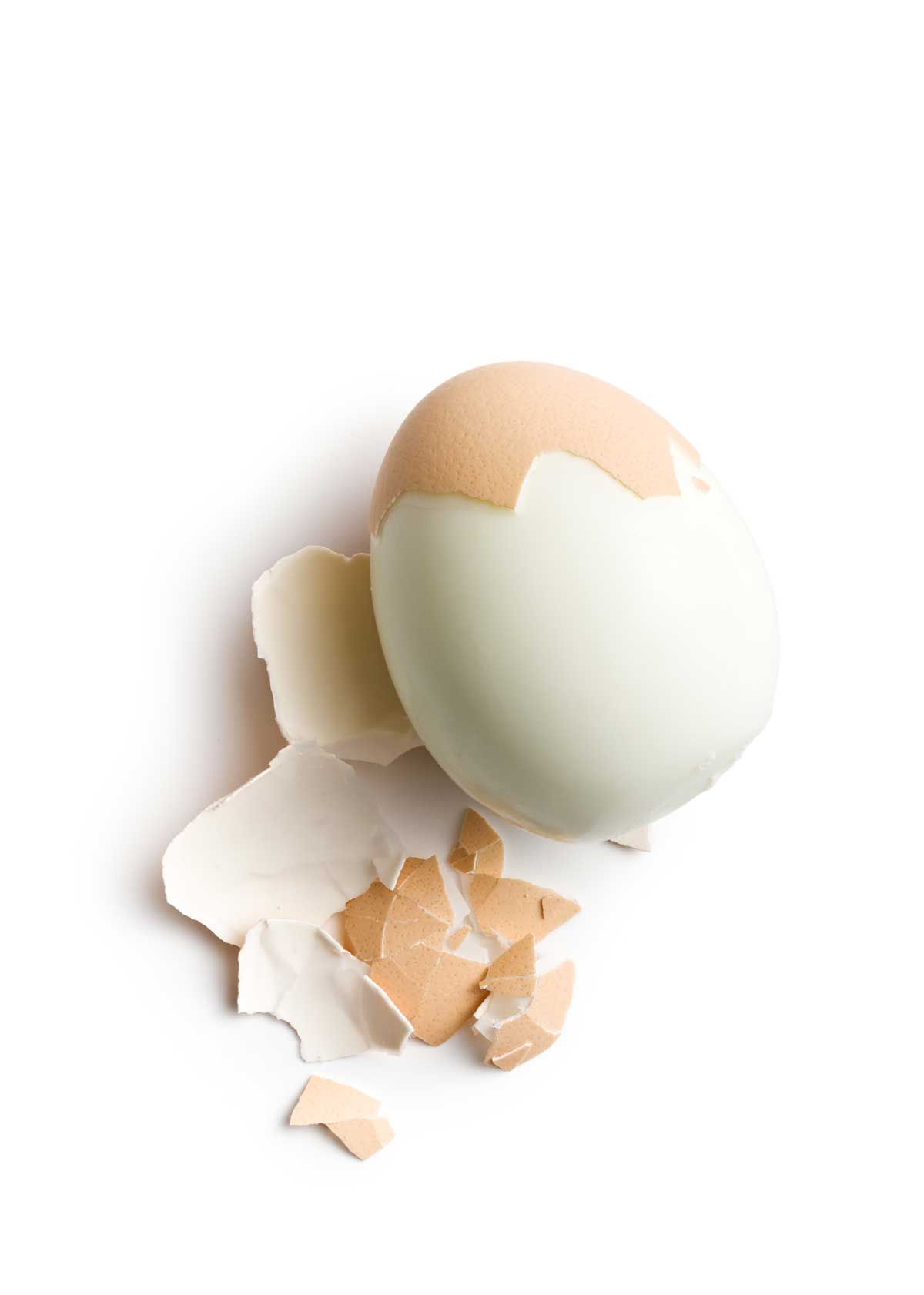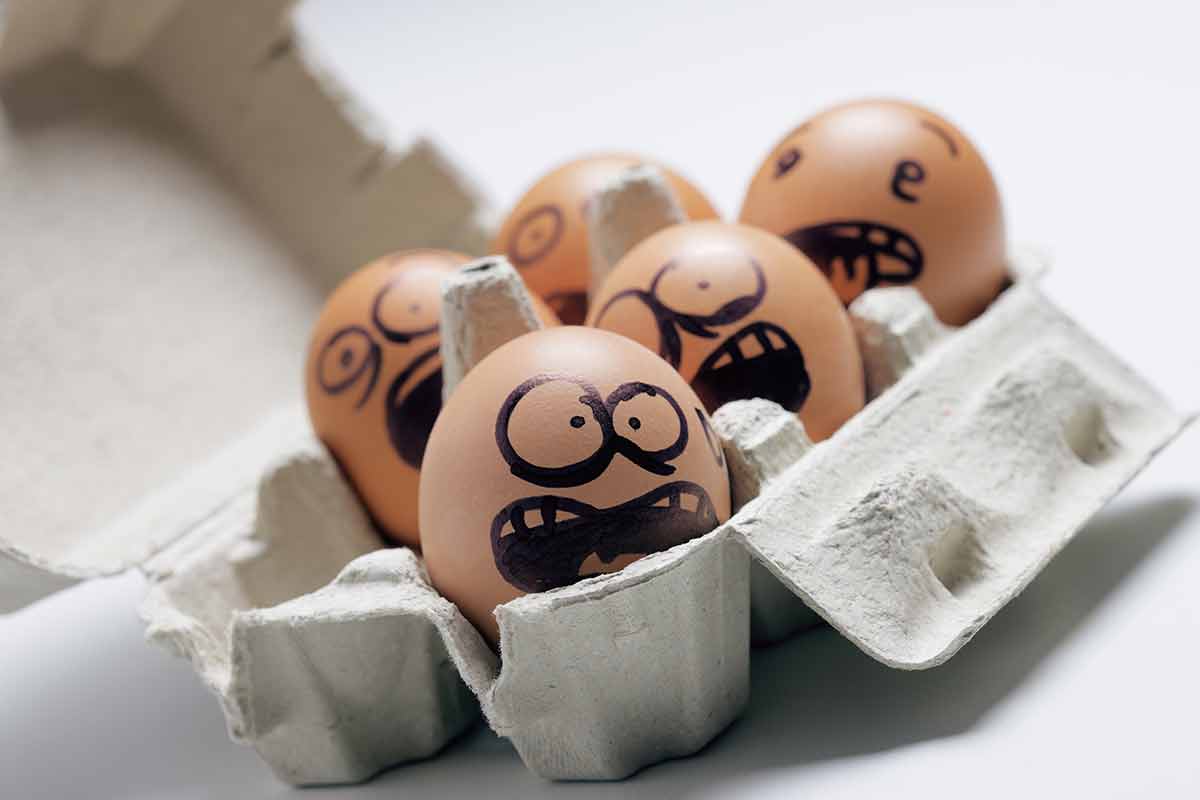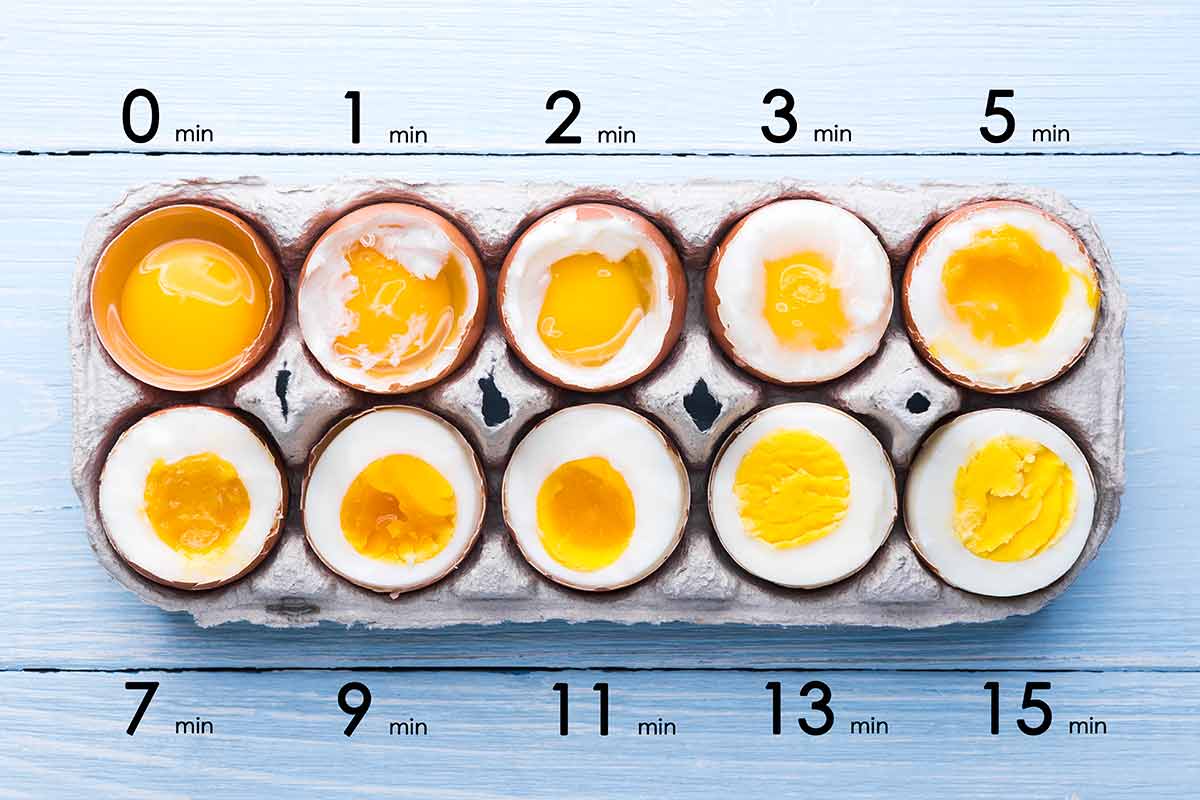
Jump To
- How to Cook Hard-Boiled Eggs the Easy Way
- “Are you tired of egg acne?!”
- Why are hard-boiled eggs so hard to peel?
- Why should I steam rather than boil my eggs?
- How do I steam my eggs?
- How long should I steam my eggs?
- How do I avoid that hideous green ring in my hard-cooked eggs?
- And, last: Aren’t eggs bad for me due to high cholesterol in the yolks?
How to Cook Hard-Boiled Eggs the Easy Way
“Are you tired of egg acne?!”
I felt like I was caught in some surreal infomercial nightmare: “Are you tired of egg acne?” I heard an overly testosteroned voice in my head ask me. “Do your deviled eggs look more bedeviled than egg? Do you gouge your hard-boiled eggs every time you try to peel them?!”
The truth was: yes. I was tired of pockmarked eggs. I was pulling off a quarter inch of egg white in the name of peeling off the shells. And, if I’m honest, I think my eggs were as terrified of me as I was of them.

So I tried every trick there out there. I let dozens of eggs languish in the fridge because “gentle-aged” eggs are supposedly easier to peel. (Not necessarily.) I attempted adding the eggs to the water and then bringing it up to a boil. (Most cracked.) I simmered the water instead of boiling it. I added salt; I added baking soda. I gave shocking the eggs in ice water a twirl. I even let them sit in the fridge overnight before peeling. Needless to say, I ate far more than my share of egg salad sandwiches in the name of screwups.
Why are hard-boiled eggs so hard to peel?
I’m not a food science guy, but the basic idea is that there’s a membrane just below the eggshell. It’s that thin, papery covering you curse at when you’re having a bitch of a time peeling eggs. The reason it clings so ferociously to the egg white is the pH level of an egg white is naturally more acidic and that acidity acts as a glue, binding white to membrane, especially in fresh eggs. The solution many cooks swear by (not me, though) is to use older eggs.
The problem with that is the whites in older eggs tend to thin a bit over time, allowing the yolk to wander off center. And that’s why you get googly-eyed deviled eggs. Not exactly the best look on the buffet table.
Why should I steam rather than boil my eggs?
I first heard of the concept of steaming eggs a few years ago from Jeff Potter, author of Cooking for Geeks. By steaming eggs, the water vapor permeates the shell and helps to loosen the white quickly from the membrane.
How do I steam my eggs?
- Place a steamer insert into a saucepan and add an inch or so of water. Cover tightly.
- Bring the water to a boil.
- Carefully nestle large eggs directly from the fridge into the steamer insert. (Steam van burn!)
- Cover tightly.
- Steam.
- Immediately dunk the eggs in an ice bath.
- When the eggs are cool enough to handle, peel them. (I find I don’t need to peel under running water.)
How long should I steam my eggs?
Steaming eggs is similar to boiling eggs in terms of timing and results. I like my eggs with a bit of creaminess to the yolk, so I steam them for 8 minutes. The One likes them more cooked, so I cook his 10 to 12 minutes.
Keep in mind that the size, temperature, and number of eggs will affect cooking time. The visual chart below gives you a great place to start for large eggs directly from the fridge.

How do I avoid that hideous green ring in my hard-cooked eggs?
Ah, the gruesome green ring that circles the yolk. That occurs due to a reaction between the sulfur in the egg white and the iron in the yolk when you’ve cooked your eggs too long or at too high a temperature. The great thing about steaming eggs is it’s gentler than furiously boiling them. An immediate plunge in ice water afterward also helps stave off the green.
And, last: Aren’t eggs bad for me due to high cholesterol in the yolks?
Thankfully, no. At one time, people were leery of eating eggs because of the cholesterol in egg yolks. Recently, researchers have found that eggs actually raise the good cholesterol your body needs, and the Federal dietary guidelines were changed to reflect that. Now, according to the Dietary Guidelines Advisory Committee, they no longer warn against dietary cholesterol that suggests folks limit the number of eggs they consume. Translation: Bring on the egg salad!










This is a game changer for me. . I love, love, love soft boiled eggs – but I go through this egg-motional roller coaster when I consider making them thinking I’m going to be leaving half of the egg in the shell. I love to open the shell, scoop out the entire egg into a bowl and break into it over slow roasted tomatoes and avocado. Rarely does it come out the way I envision. I read this post early in the morning and immediately ran to the kitchen, filled the pan with water and steamed 2 eggs for 7 minutes (not certain of what the final result would be). I ran them under cold water, did a quick crack of the shell and in no time, I was able to peel that egg without losing any egg and scoop the entire egg into a bowl of avocado. It was not as silky as I would have liked, so I have learned how to adjust the time for soft boiled eggs down to between 5 and 7 minutes — hard boiled for my husband with a softer firm yolk is about 8 -9 minutes. I’ll never boil eggs again!.
I’m so happy to hear this, CherieDe! So glad that we have helped you improve your egg game.
I too have tried so many different egg recipes and was blown away when I discovered that steaming was the absolute best way to boil eggs. And if after cracking them you discover some are too stubborn to peel easily due to being too fresh, run the cracked eggs between your hands and roll them gently under running water which allows the water to seep in between the cracks and makes egg removal a snap! Best boiled egg site ever!
Thanks, James!
Your tips and recipes are keepers. I am so glad that I discovered your site!
Thanks, Cheryl! We’re so happy to have you here.
You are brilliant! Why didn’t I know this?
Why, thank you, Mary Louise! But the credit goes to Jeff Potter. He’s the guru who I learned it from.